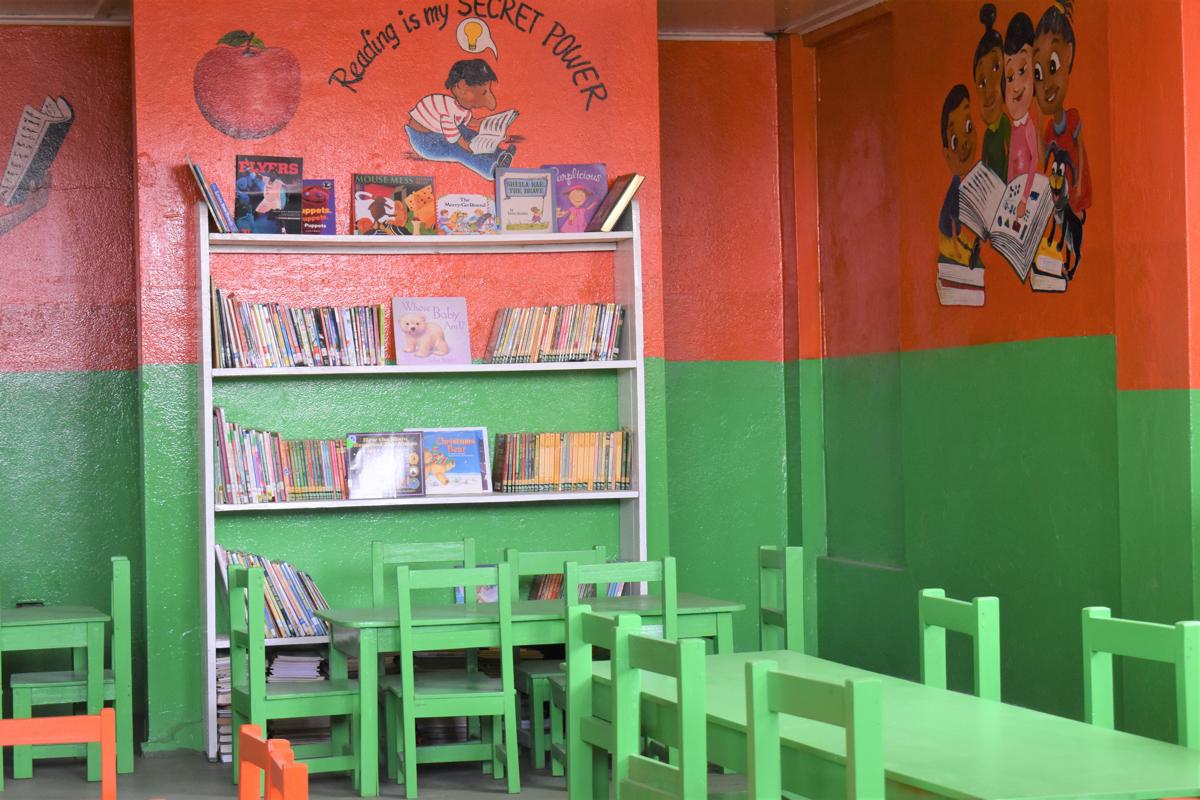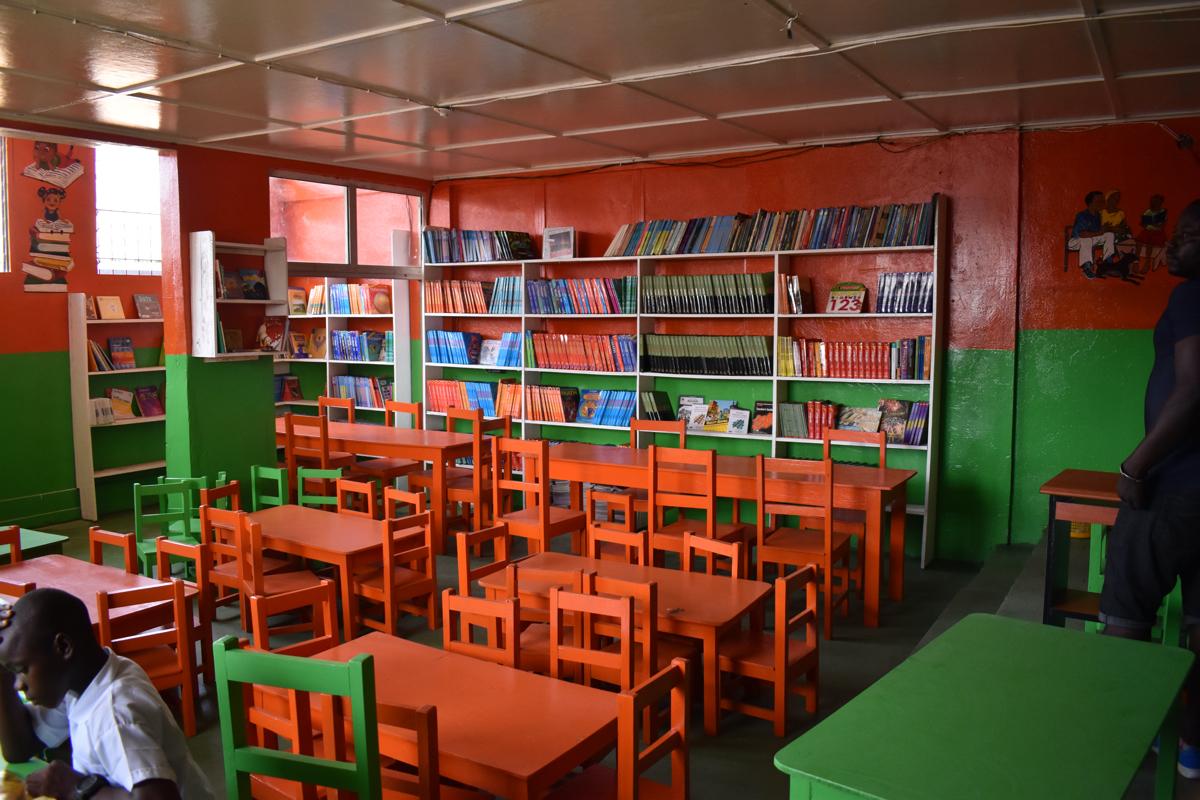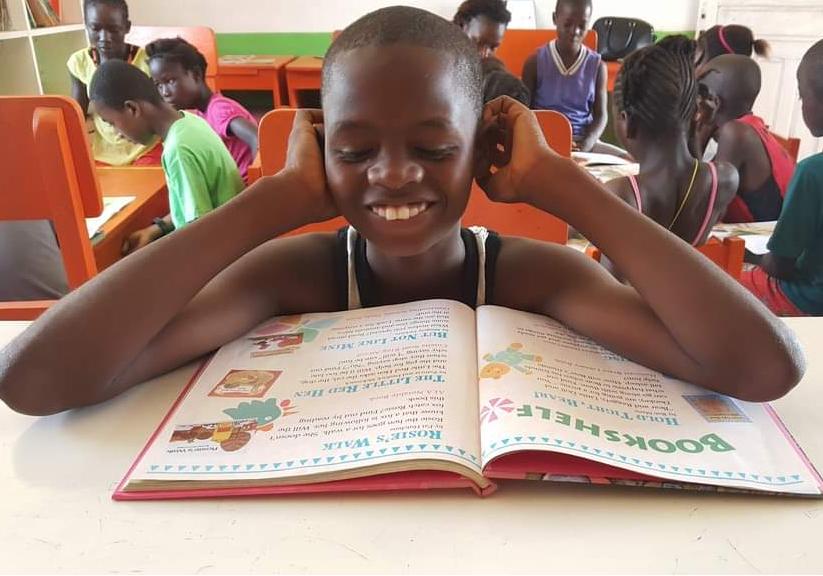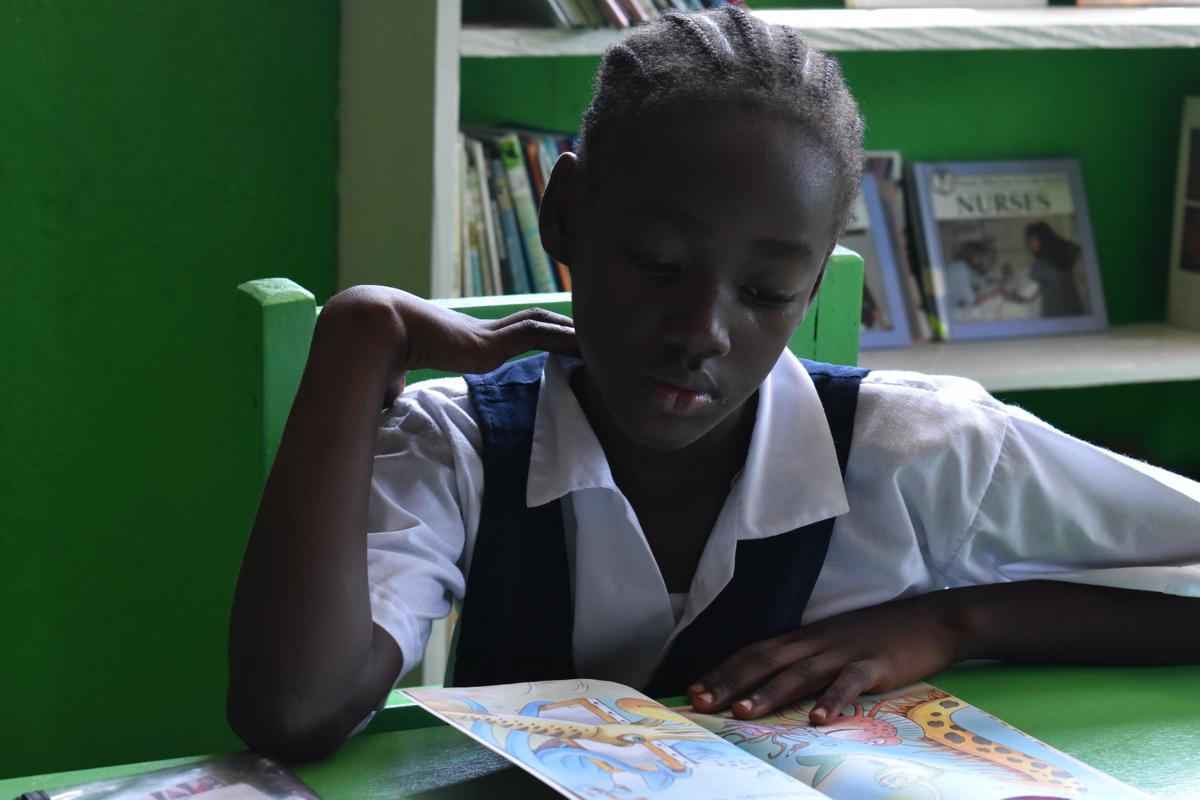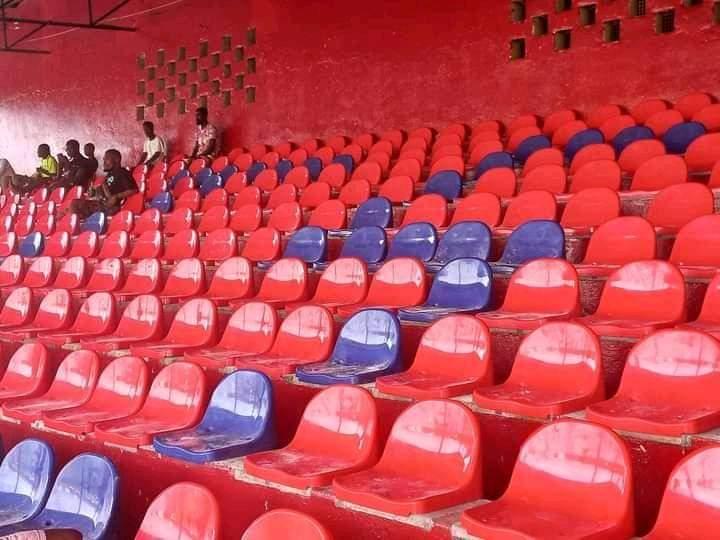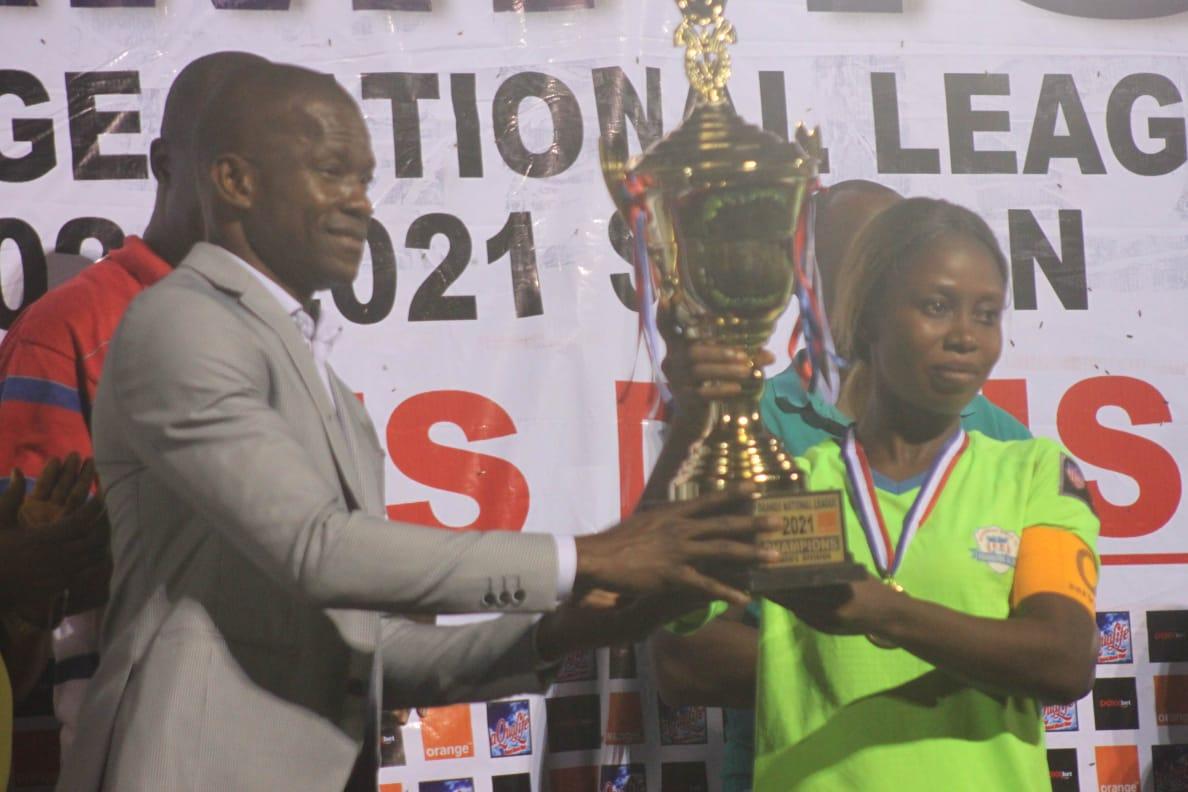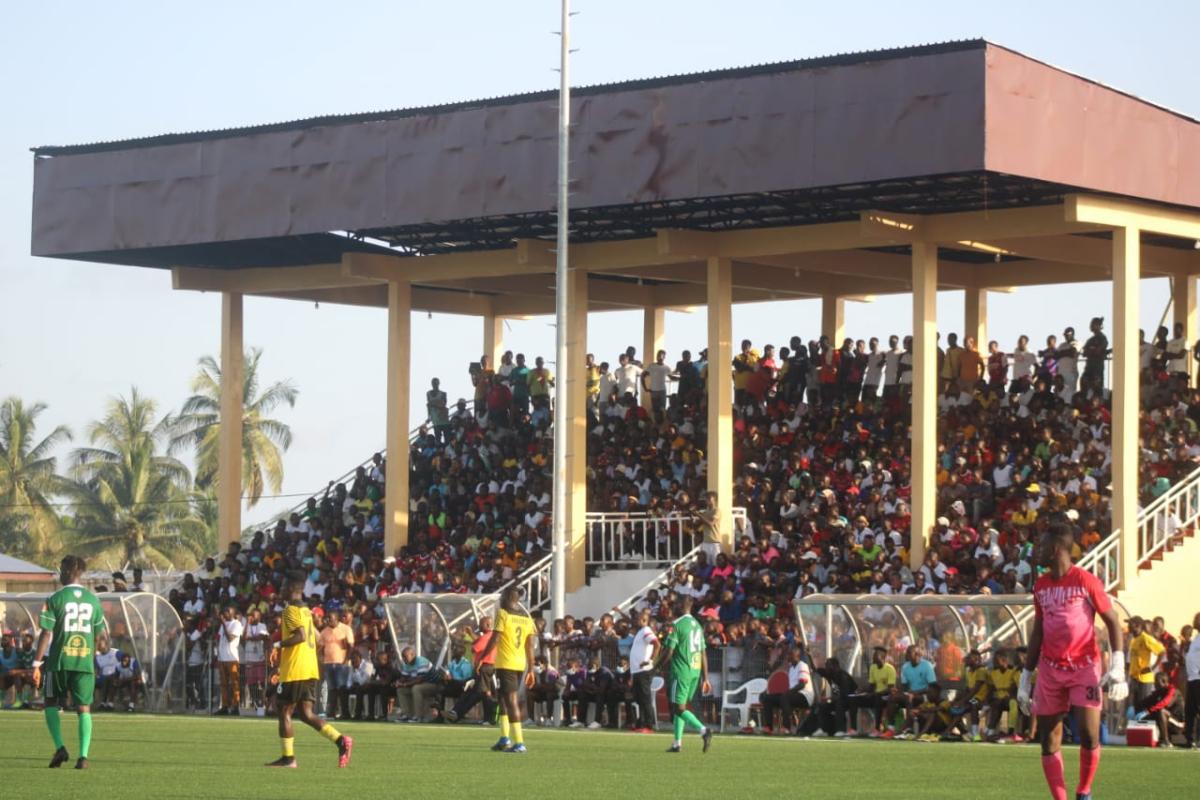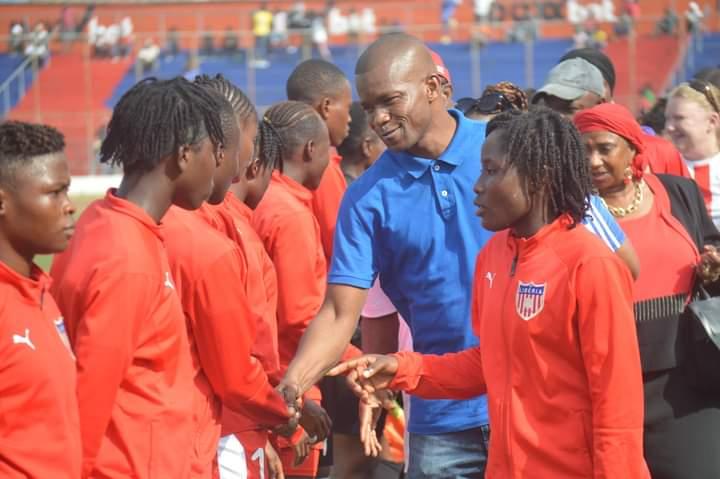Persons of the Year: The Pragmatists

Brenda Moore and Mustapha Raji are the Daily Observer’s 2021 Persons of the Year.
... For showing that the forces of pragmatism are greater than the furies of neglect, and ideals; for creating opportunities for the future generation of Liberia who may not have otherwise been able to have in their lifetime, Brenda Moore and Mustapha Raji are the Daily Observer’s 2021 Persons of the Year.
They are individuals from opposite sides of life, but Brenda Moore and Mustapha Raji have one thing in common: dealing with societal problems or situations by focusing on practical approaches and solutions — ones that will work in practice, as opposed to being ideal in theory.
They are the dictionary definition of ‘pragmatists.’ And among the crowd of many so-called change markers in Liberia, Moore and Raji are in the class of their own — making some serious impact in their respective sectors. Brenda and Raji are on a mission to solve some of the country’s most intractable challenges in the education and football sectors, and will not stop until their last breath.
Investing in literacy
For Brenda, Liberia is at a cross-road with an educational future characterized by extreme poverty and inequality. Many lack access to adequate resources for reading and comprehension and thirst for the opportunity to hear from and interact with phenomenal personalities. And to solve this problem, she founded the Kids’ Educational Engagement Project (KEEP) during the height of the Ebola outbreak in Liberia.
KEEP began as an effort to keep children academically engaged during the health crisis, but has now positioned Liberia to collectively invest in literacy by enabling communities across the country to create reading rooms and take responsibility for improving the learning outcomes of their children.
With this project, Brenda has for the last seven years supported the country’s several education sector initiatives, including the establishment of libraries and reading rooms at public schools as well as teachers training, and computer literacy.
“I am an author who is very passionate about seeing a better Liberia. That I know is possible and because of that, I try to pull my energy into projects that I hope, in a small way, can contribute towards making Liberia better. This is so because I believe I have a role to play in helping solve some of Liberia’s problems,” she told the Daily Observer in an exclusive interview. “We do construction of reading rooms; we do renovation and creation too."
"This means if we go to a particular place and they don’t have a library, we construct a reading room if we have the funds,” Brenda added. “If a school has a library without books or seating capacity, we renovate and supply the books. There are some public schools, for example, where there are only empty rooms but no books for students to read.”
Brenda and her team refurbish rooms by putting in not only books but chairs, tables, among others. In some cases, with the approval of a school administration, they convert a classroom that is not in use for instruction into a reading room.
"Sometimes, computers are also supplied to some reading rooms,” Brenda noted.
Reviving football
And there comes Raji, another pragmatist who inherited the Liberia Football Association (LFA) at a time when it was in total ruin, engulfed in half a million U.S. dollars worth of debts, and suffering from systematic corruption, declining public interest, as well as retrenchment of investments in the sport both from the public and the national government.
Also, Raji was challenged by a system that has for decades failed to effectively develop grassroots football for the development of the country’s future footballers, hamstringing not only the available players but also the sport itself in Liberia.
This was happening in a country that has produced one of the world’s greatest footballers of all time. President George Weah, in 1995, was named FIFA World Player of the Year and CAF African Footballer of the Year. That same year, he also won the Ballon d'Or, becoming the first and so far the only African player to win these awards.
He also clinched the African Footballer of the Year in 1989 and 1994 and, in 1996, he was named African Player of the Century.
Known for his acceleration, speed, and dribbling ability, in addition to his goal-scoring and finishing, Weah was described by FIFA as “the precursor of the multi-functional strikers of today.” In 2004, he was named by Pelé in the FIFA 100 list of the world's greatest living players.
But yet, football in Weah’s Liberia was dying and the task of restoring the sport to the glory days of the past, while searching for the next Weah, would eventually fall on the shoulders of Mustapha Raji, former President of one of Liberia’s most successful post-war clubs, LISCR F.C.
“Becoming head of LFA, I felt good but it is not just an easy thing. It was tough. First and foremost, the LFA was in a terrible financial situation,” Raji told the Daily Observer in an exclusive interview. “When I took over in 2018, the environment was terrible. So we started working and the first focus was on clearing the debts, which includes addressing the liabilities of not just the employees but also vendors. It was challenging, but we saw it fitting to clear those debts. We also had to clear the debts with the former national team players,
The records show a clearer picture: Raji’s administration incurred a debt of more than US$500,000 ranging from employees’ salaries, cash prizes for clubs, and arrears for former national team coaches, among others. The biggest hurdle among the inherited problems was the financial sanction placed on the football association by FIFA, restricting funding from the world football governing body to the LFA.
A little over 60 percent of LFA’s income is received from FIFA, according to the football house’s budget analysis. With this, Raji could not kick off his vision to improve the footballing sector of the country. Instead, he had to begin “correcting the wrongs” before moving any further. Fortunately, the stumbling block was removed a year later, in 2019, when FIFA lifted the financial sanction on the LFA.
“This is why we took over — to correct the wrongs and put in place the corrective measures so that our country can be on par with other countries that are doing well. We now have all of the policies and ideas in place to avoid going back to financial restrictions,” Raji explained. “And we reengaged Orange to reactivate the sponsorship, which they did.”
Change Makers, Pace-setters
For Brenda Moore and Mustapha Raji to show that the forces of pragmatism are greater than the furies of neglect, and ideals; for creating opportunities for the future generation of Liberia who may not have otherwise been able to have in their lifetime, they are the Daily Observer’s 2021 Persons of the Year.
The award is an annual accolade given by the Daily Observer, which profiles a person, a group of persons, or an institution that has made a significant impact on the country and its people on a national scale. The Person of the Year is a change-maker and a pace-setter, impacting the lives of the people directly and, for now, Brenda and Raji are doing just that and have shown that their pragmatic work ethics are worth emulating if the country will move forward.
The KEEP story
Brenda has spent a lifetime defying the odds of running an organization in a country where education is less a priority in practice than it is on paper. And to succeed in such a hard environment, Brenda had to focus on a simple, cost-effective model to spur the culture of reading as the basis for improving learning outcomes among school-age children via library projects.
In Liberia, poor investment in public schools is an epidemic -- widening the gap between the quality of education provided in private schools and public schools. And that neglect breeds stagnation, leading to a cycle of poverty that often goes ignored. Public libraries do not exist in Liberia, and for public schools to own some, it is rare. If they exist, the libraries end up being run-down rooms with only a few state-sponsored textbooks. The available are sometimes used as teacher break rooms.
Reading is not something people generally do for pleasure, and children read-only when required in school — that is, if the school requires it. And where public schools have libraries, like Tubman High School, for example, they are sponsored by private individuals.
So Brenda, whose organization, KEEP, has created twenty-two mini-libraries and three learning resource centers across nine of Liberia’s 15 counties, has to partner with school administrators to create attractive reading spaces, which are then stocked with books for children of all ages. The schools are selected based on population, accessibility, and community interest. She then goes ahead to foster partnership between the school, family, and the community.
At the same time, teachers are being provided basic computer literacy skills, while activities and programs to instill this culture of reading are constantly undertaken.
“It is because of the huge disparity between the urban communities and the rural communities in terms of having quality education for the children that we became deliberate in not limiting our works to Monrovia. This is why we are in other counties. Our main mission is to address the lack of social justice. Education is connected to this mission,” Brenda added.
“This is why we take computers and send them to Grand Gedeh County, to make sure that students there learn basic computer ideas as any other student in Monrovia. It is why we send computers to Gbarpolu and train students and teachers so they too can have basic literacy in computers.”
Grand Gedeh and Gbarpolu counties, located in southeastern and northwestern Liberia, respectively, are some of the country’s hard-to-reach political subdivisions.
“There are schools we are working within the counties that have only two teachers for hundreds of students. Libraries are built at places that are overlooked,” she explained. “The Ministry of Education itself hasn’t even prioritized the creation of libraries in its schools. We do a lot of our libraries in public schools but, if you check the national fiscal budget, there is nothing in there for our organization.
After creating the libraries, Brenda, who in 2020 was honored by the Ministry of Education for promoting literacy and being awarded the Liberia National Literacy Award, will then leverage the feeling of ownership to the community to take full ownership of the library. Books for the libraries come via book donations and book drives and with support from Books for Africa, Brenda has managed to get thousands of non-academic books designed to help children develop an interest in reading.
So far, she has received more than 25,000 books and distributed 27,000 books to six reading rooms in Liberia. Each reading room takes about 1000-1500 books. Also, 4,300 students have read at KEEP facilities so far, while 157 trained in computer literacy. Moreover, more than 155 teachers have been trained in reading strategies, with 70 plus reading sessions for students.
The success of such an approach has now led to the national literacy awareness program which involves inviting national figures to host reading sessions at school to move from once or twice a week to five days a week at the project schools. This means, every school day, a child reads something. But despite these successes, challenges are lurking around the corner. But the desire to help correct this problem of reading in Liberia has stopped her from giving up.
“The problems are there but, we have to stand up and make the needed contribution as we are doing now. My motivation to go about doing what I am doing is that I don’t want my kids to grow up having the reality that I have today. I will not want to see my children see another country as a better option than Liberia. I don’t want them to feel that they are wasting their time in Liberia,” Brenda noted. “I am motivated that whatever little we are doing is making an impact. There are many challenges but I don’t have to give up. There are days I feel bad, get vexed but I dodge it and move on. The alternative is quitting, but I don’t want to quit. I can do something else and make money but I have made up my mind to do this.”
She added, “I sometimes go on asking myself why am I even stressing myself when the government does not consider the establishment of libraries at its schools as a priority. But, again, that’s a different story for a different day.”
While determined to see this journey through, Brenda’s goal is to cover the entire country with libraries in schools, especially now that KEEP has covered nine counties already, with six more remaining. But that goal might be tough as funding is a challenge. Nevertheless, Branda is developing an innovative module sustainable organization and making these dreams come true. This means Brenda has social enterprises in mind to support the program. She started one — a bookstore in Gbarpolu County, but it flopped.
“But we are not giving up because we need money, apart from donor funding, to keep our programs alive,” she disclosed confidently. “The real way out for any NGO is to work yourself out of your existence. If there is a problem, you should solve that problem so it does not continue to exist.”
The next goal on Brenda’s agenda is to expand the organization’s scholarship program, which has seen them sponsor ten children whose parents died from Ebola. Now that there is no more Ebola, not many people care about the negative impact but, for Brenda and KEEP, they are conscious and doing their best to make every little contribution count.
“This has been on for the last eight years. Fortunately one of them graduated from high school. She is visually impaired. She has started school at the teachers’ college,” the KEEP founder added. “She wants to be a teacher and we are supporting her. She is now working with us too. Seeing her succeeding today is heartwarming. It’s a joyous but teary reality. Her name is Victoria and she is the first in her family to finish high school.”
For Brenda, keeping the organization and its project running requires funds, so she generates support through a fundraising strategy that focuses on raising money not only from foreign NGOs but from Liberians, both in Liberia and the diaspora. By this, she fosters local ownership of the vision.
The nine counties covered by KEEP are Gbarpolu, Grand Gedeh, Montserrado, Margibi, Rivercess, Maryland, Bong, Bomi, and Grand Bassa. Counties to target, later on, include Grand Kru, Grand Cape Mount, Lofa, River Gee. Two others are already under construction in Nimba and, in a couple of weeks or a month from now, it should be ready for students.
Rebranding Liberian football
Just like his pragmatic friend, Raji’s success at the LFA in less than four years comes as no surprise. His leadership has led a once-neglected women’s football league to gain attention and has now become popular. Women’s football has long existed in Liberia with little support and little interest from women and girls to play football. The competition existed, but only among a few clubs for the championship cash prize.
Yet there was no competition for maintaining status in the league as nine clubs were competing in a single league with no relegation or promotion. And following the climax of the 2018 league season, a league that was considered a pilot phase for the Raji administration aimed at “making women’s football the number one priority sport for women and girls in Liberia.”
The LFA, under the leadership of Raji in 2019, introduced the Women’s Lower Division League – comprising 10 teams with a new breed of players – a majority of whom had never played in the Liberian women’s league. The introduction of this league was meant to bring more competition as promotion and relegation have now been included in the women’s division.
“Nine teams have been playing in the women’s division league. We are here to increase the number of teams and increase competition for the value of money. We have two leagues, one is promotion and the other is relegation,” he said.
Not just this, but Raji has introduced the women’s community league, tested through the non-promotional women’s league in Lofa, Grand Gedeh, and Maryland Counties with 22 participating teams. This comes after a significant increase in the number of women's football clubs and players, while the competition and interest in women's football continue to grow.
For the first time in Liberia’s history, and particularly after the climax of the 2020/21 league season, the MVP in the women’s division was rewarded with a brand-new car plus L$300,000. This was awarded to Angeline Kieh, a long-time outstanding player in the women’s division, who at long last benefited more from her dedication and passion for women’s football. Prior to the 2020/21 league season, football leagues around the world went into disarray due to the COVID-19 pandemic. This led to the nullification of the 2019/20 league season but also created more opportunities for women’s football.
The LFA, with support from FIFA and CAF through a COVID-19 relief fund, provided each of the nine women’s football teams in the upper division US$11,666 and US$7,000 to the nine clubs in the lower division.
This was followed by the distribution of pieces of office equipment including laptops and printers to all 18 women’s football clubs; the purchasing of two 35-seater coaster buses to be used by the women’s national teams; and women’s grassroots football clubs. The impact of funding distribution shouldn’t be overlooked. It was a challenging test for Raji and his team of executive committee members. In 2019, FIFA banned former LFA president Musa Bility for 10 years and fined him $500,000 for the misappropriation of FIFA funds granted under the global body’s “11 Against Ebola” campaign as part of its financial assistance program.
Thankfully, Raji and his team have been cleared of all financial misappropriations and related suspicions following FIFA’s forensic audit on the first payment of US$1.3 million relief funds received from FIFA.
Now, the country’s discovery of the next ‘George Weah’ hugely depends on the performance of the champion teams in continental competitions, something that Liberia continues to struggle with. However, the clubs have a significant role to play in achieving that success, as the LFA continues to play its part by providing a playable environment, capacity building, and financial contribution to clubs.
“We introduced the subvention payment to clubs because there is no money directly coming from the LFA for clubs,” he said. “In 2019, we introduced the payment of US$2,000 for first and second clubs in our first major league. That amount was increased to US$4,200 in 2020 and now in 2021, the amount has been increased to US$5,000.”
The cash prize for winners of the first division league has been increased as well. The visible aspect of the achievements made under the Raji leadership can be seen and, after several years of using the Antoinette Tubman Stadium as the FA’s main venue for crucial league games, the FA now has the refurbished Tusa Field in Gardnersville, Doris Williams Stadium in Grand Bassa, Technical Center in Careysburg and a new SKD mini-stadium in Paynesville, to host league matches.
Other projects have been approved. The Gonpa Stadium, the Willis Knuckles stadium, in Maryland, Grand Gedeh, Voinjama among others will be worked on.
“We may not achieve all of our goals in this term, but with what we have so far done, we will be seeking the mandate from our people so we can roll out the next face of developments,” Raji said. “We are doing our best to rebrand Liberian football so we can get on par with other countries that are doing well.” “We have to go and sustain our international presence. We need to improve our FIFA ranking; we will have to improve our participation in competitions at the international levels.”
One of the main strategies by Raji and his team to achieve these goals is the reactivation of various youth national teams in both male and female categories.



